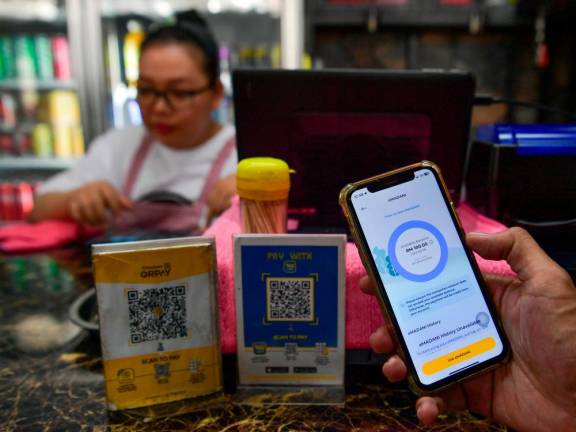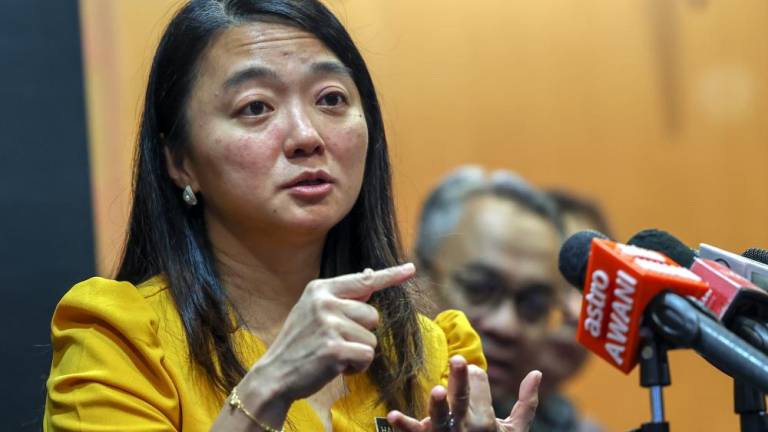A waiting list of three to six months has become a common complaint among new-car buyers not just in Malaysia, but globally. It is by no fault of the car manufacturers. The automotive and industrial sectors were among the hardest hit by the global chip shortage.
They are not seeing the light at the end of the tunnel yet as the semiconductors supply crunch is likely to last through 2023 and perhaps longer . Intel Corp, the world’s largest manufacturer by revenue of semiconductor chips, reported that the shortage is likely to continue until the end of 2024 due to a lack of manufacturing equipment.
The situation was further aggravated by the constant shutdowns of chip manufacturers during the Covid-19 pandemic, while any available supply was prioritised to consumer electronics. This eventually crippled the supply to carmakers and resulted in a growing backlog of orders for new cars. Several of the world’s biggest carmakers, including Volkswagen and Toyota, expressed that this remains a major problem for them.
Closer to home, the chip shortage in Malaysia created a ripple effect on the supply and demand chain in the automotive market. It negatively influenced the total industry volume (TIV) numbers and production output, which led to a price hike, a longer waiting period, and a delay in deliveries of new cars.
The Malaysian Automotive Association (MAA) reported that the ongoing computer chip shortage and the supply chain disruption caused by the flood in December 2021 had affected TIV numbers in January 2022 . It may take a while before local production and supply return to normal . Moreover, MAA expects new car prices in Malaysia to increase due to the rising price of raw materials and logistic costs, which will amplify as the chip shortage persists .
These external factors delivered a domino effect to the automotive industry, which led to a longer waiting period and late deliveries for new vehicles. This impact was apparent when a local carmaker announced that orders placed after May 1 would only be delivered after July 1. The Sales and Service Tax (SST) exemption ending on June 30, 2022 may also result in higher car prices or a decline in the sales of new cars.
While local carmakers compete to ship vehicles to buyers and adjust to this disruptive phenomenon, consumers have been peeling their eyes looking for attractive alternatives. Furthermore, the used car market makes a strong contender with many shifting their demands to pre-owned cars as a viable and appealing option. As consumers seek alternatives to meet their needs and overcome this disruption, pre-owned cars became in demand and provided a boost for sales in the market.
Having seized this window of opportunity, used car dealers have enjoyed brisk business from January to May 2021, with sales increasing by more than 10% compared to the same period in 2020. Moreover, there are some 10 million active drivers in Malaysia, and the numbers are growing each year with first-time car buyers, half of whom opted for used cars, as reported by MAA. This is a testament to the high demand for pre-owned vehicles.
Furthermore, the surge in demand for pre-owned cars has led to growing opportunities for brands like Carsome to bridge the supply and demand gap for vehicles and address the need for private transportation ownership in Malaysia. Given the situation, brands in the used car market have also been ramping up initiatives to improve the quality of pre-owned cars while providing a better customer experience to ease the process of owning a vehicle with financing options.
While this serves as a stopgap solution in the dire state of supply and demand in the automotive industry, it is undeniable that this situation presents an opportunity for used car players to change the perception that pre-owned cars are not just “hand-me-downs” anymore.
This perception is further dispelled by key players in the used car industry that offer a thorough inspection process, with other added services to provide customers the peace of mind and convenience they need. For example, at Carsome Certified Lab, all cars have gone through a 175-point inspection process before they are selected to undergo many stages of refurbishment to become a Carsome Certified car. The journey to owning a pre-owned car is also made easier at Carsome PJ Automall, a newly launched Carsome Experience Center where customers can view, test drive a car, and explore financing options and car aesthetics services in one location for total convenience.
Regardless of the global chip shortage, used car players must continuously strengthen their offerings, and what better time to do that than now, when the demand for pre-owned cars is high. It must include quality-assured cars, extensive vehicle selection amid the rising demand, seamless transaction experience, and better customer service – to cement its market presence and consumer trust.
This vision, when practiced, not only drives the used car market forward while catering to consumers’ demand but also establishes a sustainable journey for pre-owned car brands within the industry itself. It ultimately indicates that the Malaysian automotive industry has the potential to contribute massively to the economy as a whole.
This article is contributed by Carsome Certified Malaysia country general manager Alan Cheah.















